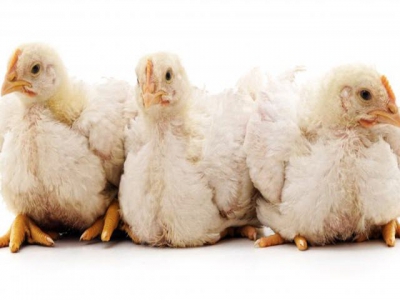Customized probiotics for turkeys may be effective antibiotic alternative

Next steps will be to test customized probiotics on poultry farms.
The microbiome — the genetic material of bacteria, fungi, protozoa and viruses that live on and in all animals — is critical in the health and performance of production turkeys, and overexposing the birds to antibiotics can lead to antimicrobial resistance, which can make some turkey diseases untreatable and pose a serious risk to human health, according to an announcement from the University of Minnesota College of Veterinary Medicine.
A recent University of Minnesota study is among the first to find that customized probiotics — that match certain types of bacteria found in the host’s gut — can be an effective alternative to antibiotics for production animals. The findings were recently published in mBio.
The researchers used the turkey’s own microbiome to identify and refine a cocktail of host-tailored bacteria from a collection of thousands. They then delivered the cocktail to young turkeys and compared the effects of the probiotic cocktail with a commonly used low-dose antibiotic, the announcement said.
The study found:
* Low-dose antibiotics and probiotics produced similar results, but only when the probiotics were tailored to match the concoction of microbes living within high-performing turkeys, and
* Alternative approaches to low-dose antibiotic use in poultry are feasible for promoting production and can be optimized when customizing to the indigenous poultry microbiome.
“Our results show that customized probiotics for food animals may be beneficial, which could be a game-changer for veterinary and human medicine,” said study lead Tim Johnson, an associate professor in the University of Minnesota College of Veterinary Medicine. “No alternative will completely replace antibiotics, but these customized approaches allow us to maximize their effects and minimize their use.”
Johnson said the next steps will be to test customized probiotics in poultry farms to determine where they do and don't work. Johnson and his team have also submitted a patent application based on this work for enhancing performance through customized probiotics in turkeys. The goal is to create a commercialized tool for veterinarians to use on farms. Ultimately, he said he hopes this approach will result in a suite of products that will benefit turkey growers in Minnesota and around the world.
Related news
 Adding curcumin to quail diets may boost production, cold stress response
Adding curcumin to quail diets may boost production, cold stress response Supplementing the diets of farm-raised quail with curcumin may improve production, egg quality and fatty acid profile for birds facing cold stress, researchers
 Brain research to test embryonic stress, hunger in poultry
Brain research to test embryonic stress, hunger in poultry Scientists to examine how stress experiences affect development of brain processes linked to appetite in birds.
 Can valine supplementation retain growth performance in birds on low protein diets?
Can valine supplementation retain growth performance in birds on low protein diets? Valine reduced the impact of the lower CP diets through its beneficial effect on protein accretion and intestinal morphology, they said.